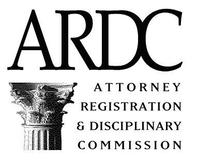|
by Jim DiFrancesco Responsive Law recently submitted comments to the Illinois Attorney Registration and Discipline Committee (ARDC) regarding its study of how to regulate client-lawyer matching services. Client-lawyer matching services allow consumers to find lawyers that match the expertise needed for their case quickly and online, across multiple firms. The commentary focused on how both lawyers and consumers benefit from these services, and how regulation can be implemented to protect the interests of consumers while also promoting innovation and growth.  The ARDC must comply with antitrust and First Amendment law The ARDC is taking a step in the right direction by expanding the ability of consumers to find lawyers through third party services, an issue that many other states have treated with skepticism or outright hostility. That being said, the ARDC must avoid committing antitrust or First Amendment violations in its attempts to regulate client-lawyer matching services. Consumers benefit from access to a competitive market for legal services. A matching service with multiple companies competing for customers means lower prices for the consumer, while ensuring high quality of service. The U.S. Supreme Court ruled in the 1977 case Bates v. Arizona that the public has a First Amendment right to be informed about attorney services. While this does not mean that lawyer advertising cannot be regulated, it does mean any regulations should be enacted for compelling reasons and be narrowly tailored to those reasons. The ARDC study notes that client-lawyer matching services provide important information to consumers and streamline the process of finding a lawyer by moving the marketplace online and allowing consumers to compare attorneys more easily. Following the U.S. Supreme Court’s 2015 decision in North Carolina Board of Dental Examiners v. FTC, state regulatory boards, including bar associations can be found in violation of federal antitrust laws should the organization consist primarily of members of the profession they are regulating, and are not actively supervised by the state government. In order to avoid federal antitrust action, the ARDC and the bar of Illinois should allow non-lawyers to play a role in the regulation of this market or let the state of Illinois be actively involved in this regulation. So were the ARDC to adopt a less consumer friendly, anti-competitive framework, it may soon end up facing legal challenges, which would further delay the implementation of a much needed service for the consumers of Illinois. Creating a framework that helps lawyers and protects consumers The proposal concluded that regulation of this market would best be handled by the ARDC directly. This means every entrant to the market would need to be reviewed and monitored on an ongoing basis. Directly monitoring both new and existing members of this market would be expensive, and the costs will be felt either by businesses through additional fees, or consumers through taxes. These added costs would make both consumers and advertisers more cautious to enter the system, and less likely to innovate. Furthermore, if regulations (or their interpretation) change, then advertisers would need to overhaul their service entirely to meet the new standards. Additionally, attorneys are likely to “over-comply” with any guidelines, reducing their participation in such services. Because of the uncertainty that shifting regulation would create, and the tendency toward over compliance, any new regulations should include safe harbor provisions. Under a safe harbor system, participants in the market could be shielded from enforcement actions by following a discrete set of regulatory provisions. However, it would still allow participants to try new models outside of the safe harbor, which would not be explicitly prohibited by the regulations. Thus, lawyers and advertising platforms would have a model that allows them to safely participate in matching services without fear of legal repercussions. while still allowing innovation. The report by the ARDC is a step in the right direction by the State of Illinois and toward a regulatory framework that would maximize consumer access to lawyers through client-lawyer matching services. Creating a safe harbor would allow clients and lawyers to match in a safe, innovative and competitive place, while also balancing the needs of attorneys and consumers. Overall, the ARDC of Illinois is taking the first step towards building a competitive market for client-lawyer matching services, but there is still much to be done. You can read Responsive Law's full comments here. Jim DiFrancesco is a Responsive Law intern Donate now to help Responsive Law fight for a more responsive legal system across the United States.
2 Comments
5/27/2022 05:34:17 pm
The bar of Illinois should allow non lawyers to play a role in the regulation of this market or let the state of Illinois be actively involved in this regulation. Thank you for the beautiful post!
Reply
Leave a Reply. |
Blog History
Archives
February 2024
Categories
All
|
-
Advocacy
- Requiring Public Oversight of Lawyer Regulation
- Non-Lawyer Assistance and Unauthorized Practice of Law >
- Alternative Business Structures
- Lawyer Advertising
- Online Legal Services and Multijurisdictional Practice
- ABA Commission on the Future of Legal Services
- ABA Commission on Ethics 20/20
- Protecting Client Rights
- Limited Scope Representation ("Unbundled" Legal Services)
- Simplifying Courts
- Blog
- Issues
- About Us
- Donate
- Top Stories 2023
- Legal Help
- Report Card
- Receive Updates

 RSS Feed
RSS Feed